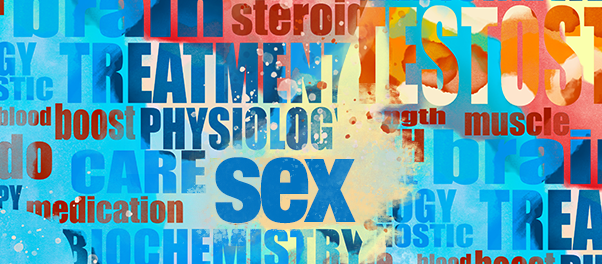- How Incarcerated Parents Are Losing Their Children Forever
- Visiting a Family Member in Prison
- The “Shadow System”
- Psychological and Social Impacts
- Parental Incarceration and Child Risk Factors
- Educational and Economic Challenges
- Correctional Policies and Family Dynamics
- Policy Implications and Systemic Responses
- Additional Resources:
How Incarcerated Parents Are Losing Their Children Forever
The loss of parental rights is a severe consequence incarcerated parents face, which is not commonly known as a significant issue in the criminal justice system. A study by the Marshall Project indicates that parents incarcerated for non-violent offenses who have not abused or neglected their children are more likely to lose their parental rights than those who have committed physical or sexual abuse against their children. In addition, female inmates are disproportionately affected, often resulting in their children entering foster care.
Visiting a Family Member in Prison
The geographic separation between incarcerated individuals and their families has far-reaching implications, emphasizing the systemic challenges within the U.S. prison system. Many prisons are in remote, rural areas, far from the urban centers where most prisoners' families reside. This distance creates significant logistical and financial burdens for families attempting to maintain contact, often involving long drives and expensive travel arrangements.
The challenges are compounded by prison policies and the lack of public transportation options, making visits even more complex and less frequent. Such obstacles not only strain family relationships but also impact the well-being of those incarcerated. Studies have shown that maintaining family ties during incarceration can significantly reduce recidivism rates and aid in the rehabilitation process. However, the current state of affairs often hinders these positive outcomes, underscoring the need for policy reforms that consider the importance of familial connections and the broader social costs of incarceration.
The “Shadow System”
The term ‘shadow system' in the context of mass incarceration refers to a network of laws, policies, and practices that collectively exert control over the lives of incarcerated individuals and their families, extending the impact of the penal system far beyond the prison walls. This system often operates subtly but has profound and pervasive effects on those it touches, perpetuating a cycle of disadvantage and segregation that impacts communities, particularly marginalized ones. Therefore, the shadow system is a critical area of advocacy focused on reforming the criminal justice system and addressing its broader social implications.
- Legal and Regulatory Framework: The shadow system includes an array of mandatory sentencing laws and restrictions that govern the lives of prisoners. These can include harsh penalties like mandatory minimums that remove judges' discretion and lead to longer prison terms.
- Economic Impact: It also encompasses the financial burden placed on families of the incarcerated, such as exorbitant fees for phone calls and visitations and the costs associated with traveling to distant prisons. These financial strains can perpetuate poverty and instability among already vulnerable populations.
- Social and Emotional Effects: Socially, the shadow system contributes to stigmatization and ongoing surveillance of families, affecting their mental health and social standing. Children of incarcerated parents, for example, may face social isolation and emotional distress, impacting their psychological development and educational outcomes.
- Barriers to Reintegration: Upon release, former inmates often encounter a system that limits their opportunities for reintegrating into society effectively. This includes difficulties obtaining employment due to criminal records, restrictions on accessing public housing, and disenfranchisement.
- Intergenerational Impact: The shadow system can affect multiple generations, as the children of incarcerated individuals are more likely to encounter the criminal justice system themselves. This cyclical pattern is sustained by systemic inequalities and reinforced by ongoing policies that fail to address the root causes of crime, such as poverty and lack of access to education.
This system not only affects those who are directly involved with the criminal justice system but also perpetuates a broader cycle of disadvantage and segregation that impacts communities, particularly marginalized ones. Therefore, the shadow system is a critical area of advocacy focused on reforming the criminal justice system and addressing its broader social implications.
Psychological and Social Impacts
Children of incarcerated parents face numerous psychological and social challenges. These include increased risks of psychological strain, antisocial behavior, and academic struggles such as suspension or expulsion from school. The instability caused by parental absence due to incarceration can lead to economic hardships and higher rates of criminal activity among these children. The quality of the parent-child bond and the presence of a supportive social network are crucial in mitigating these adverse outcomes.
Parental Incarceration and Child Risk Factors
Parental incarceration introduces several risk factors that can detrimentally affect a child’s emotional, physical, and educational well-being. These children are more likely to engage in criminal activities themselves, creating a cycle of intergenerational incarceration. Studies have shown varied impacts on children’s behavior and mental health, with some experiencing increased aggression and others facing significant depression, mainly if they had a strong bond with the incarcerated parent.
Educational and Economic Challenges
The educational attainment of children with incarcerated parents is often compromised, with a higher likelihood of disciplinary issues at school. Economically, these families suffer from reduced income levels during and after the period of incarceration, exacerbating financial instability and limiting opportunities for economic mobility.
Correctional Policies and Family Dynamics
The interaction between correctional facility policies and family dynamics is complex. While facilities can support parent-child relationships through programs that facilitate communication, the effectiveness of these programs often depends on the quality of the prior relationship. For example, children benefit from visits if they previously had a strong relationship with the parent, whereas those without such a foundation may not experience the same benefits.
Policy Implications and Systemic Responses
Correctional practitioners must collaborate with law enforcement, public schools, and child welfare agencies to address these challenges. This collaboration can help develop comprehensive support systems that recognize and respond to the unique needs of each child affected by parental incarceration. Moreover, systemic responses need to consider the racial and economic disparities that intensify the impacts of parental incarceration, aiming to provide targeted support to those most at risk.






















